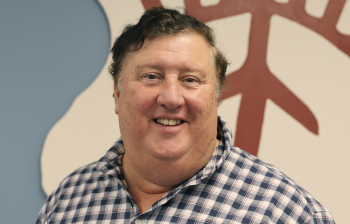Image Caption
Local Journalism Initiative Reporter
Windspeaker.com
An Indigenous professor at Thompson Rivers University has been recognized for his lengthy scholarship achievements.
It was announced on Sept. 3 that Dr. Rod McCormick is one of 104 new Fellows who will be honoured this year by the Royal Society of Canada (RSC).
RSC Fellows are recognized by their peers for their outstanding scholarly, scientific and artistic achievements.
Being recognized as an RSC Fellow is the highest honour one can achieve in the Arts and Humanities, Social Sciences and Science.
McCormick is a member of Kahnawake Mohawk Territory in Quebec.
The RSC had its first meeting in 1882. McCormick, however, has made a bit of history for Thompson Rivers University, which is located in Kamloops, B.C.
“This is the first fellow at this university, which is kind of surprising,” he said. “I just think it’s cool that the first one should be Indigenous.”
McCormick recently turned 65.
“It’s nice to get this recognition towards the end of my career,” said McCormick, who is in his 12th year of teaching at the Kamloops school.
He’s also the BC Innovation Chair in Indigenous Health at the university. He plans to continue working at the school for a few more years before retiring.
McCormick also taught for 20 years at the University of British Columbia before he made the move to Thompson Rivers University.
His main focus throughout his career has been on Indigenous mental health. His research over the years has attracted more than $50 million in funding.
What is he most proud of?
“I would say it’s capacity building,” McCormick said. “My area is mental health and psychology. So, I’ve done a lot of that work training Indigenous people to be counsellors and psychologists.”
Since he is viewed as a global expert in his field, McCormick frequently is asked to share his knowledge with Indigenous communities, governments at the provincial and national levels and with international organizations.
For about 15 years he’s also spearheaded the British Columbia chapter of the Network Environment for Aboriginal Health Research. All provinces and territories have a chapter in this network.
“We’ve basically trained Indigenous students to be researchers at the masters and doctoral level,” McCormick said.
One of his former colleagues at Thompson Rivers University also started a program called Knowledge Makers, which trains Indigenous undergraduate students to become researchers.
“She left and I inherited the program and expanded it to include Indigenous students from Australia and New Zealand,” McCormick said. “And then we’ve expanded it even further to include Indigenous women from around the world. We had a special issue with the United Nations Food and Agriculture Organization to train Indigenous women to do research around food sovereignty and climate change.
“So, we had 21 Indigenous women from 21 countries participate. Seventeen wrote articles which are in a journal which is coming out.”
McCormick is keen to expand his teachings to others with a simple concept.
“That idea of democratizing research so you don’t have to be a doctor or a student or a professor to do research,” he said. “Anybody can do research. Our next movement is K-12, so basically training high school kids and those in elementary (school) and introducing them to this concept of research to solve problems in their communities.”
McCormick is also involved with a PhD cohort with the aim of having participants become researchers and leaders in the area of mental health.
“That’s something else we’re doing,” he said. “So, we’re trying to cover all the age ranges.”
McCormick is thrilled that his career work has been assisting other Indigenous people.
“I think it’s really empowering,” he said. “For me, it feels like I’m doing something useful and contributing to the broader Indigenous community. But for the Knowledge Makers, they feel really empowered too, thinking not only did I come up with this great research idea but I published it in a journal. So, a lot of those students then go on to grad school.”
All of this year’s RSC Fellows will be honoured at a ceremony in Vancouver on Nov. 8.
Though news of his accolade was only made public earlier this week, McCormick said he was notified about a month ago about his honour.
“But they said I couldn’t tell anyone,” he said.
He’s happy the secret is now out.
“It’s kind of cool,” he said. “Hopefully this will encourage lots of other faculty at this university to apply for that recognition.

